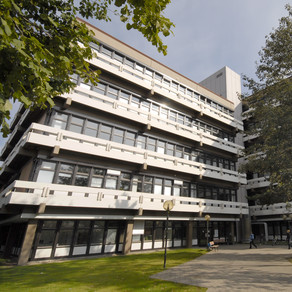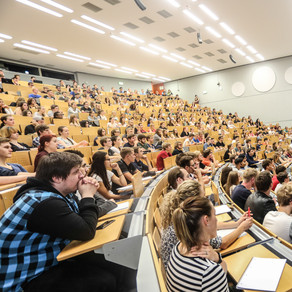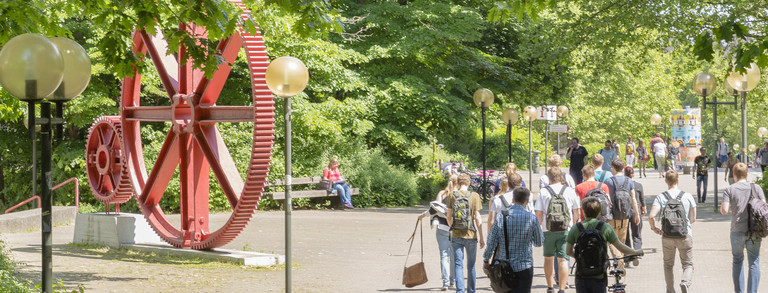Dr. Stefano Vincini

Postadresse
Emil-Figge-Straße 50
44227 Dortmund
Deutschland
Campus Adresse
Campus Nord
EF50
Vita
I am a postdoctoral fellow of the Alexander von Humboldt Foundation at TU Dortmund. Formerly, I held postdoctoral positions at the University of Vienna and the National Autonomous University of Mexico.
I received my PhD in Philosophy and my Cognitive Science Certificate from the University of Memphis, USA, in 2016. My dissertation was entitled “Developmental Phenomenology: Epistemic Grounding, Infant Imitation, and Pairing.” The dissertation committee included Shaun Gallagher (Chair), Tom Nenon, Deborah Tollefsen, John Tienson, and Dan Zahavi.
Previously, I had been visiting researcher at the Center for Subjectivity Research in Copenhagen, the Husserl-Archives in Cologne, and the Ruhr University Bochum. I earned my BA and MA in Philosophy from the University of Milan.
Forschungsschwerpunkte
Phenomenology, Cognitive Science, and Philosophy of Mind, with a focus on the development of social cognition, imitation, and shared intentionality.
Publikationen
- Vincini, S. (forthcoming). Can Interactional Approaches Solve the Empathy-Sharing Conundrum? In C. Werner & T. Petraschka (Eds.), The Empathic Understanding of Persons, Art, and Literature. Routledge.
- Vincini, S. (2023). Taking the Mystery Away from Shared Intentionality: The Straightforward View and its Empirical Implications. Frontiers in Psychology, 14, 1068404. https://doi.org/10.3389/fpsyg.2023.1068404
- Vincini, S. & Staiti, A. (2023). Tomasello, Husserl, and the Cognitive Foundations of Morality. In S. Ferrarello & M. Englander (Eds.), Ethics and Empathy (pp. 207–231). London: Rowman & Littlefield.
- Vincini, S. & Fantasia, V. (2022). Rich or Lean? A Phenomenological Alternative for Explaining Early Social Cognition. Rivista Internazionale di Filosofia e Psicologia, 3(2), 108–125.https://www.rifp.it/ojs/index.php/rifp/article/view/rifp.2022.0011/1223
- Vincini, S. (2021). Pairing and sharing: The birth of the sense of us. Phenomenology and the Cognitive Sciences. [Special issue entitled “The Phenomenology of Joint Action: Structure, Mechanisms, and Functions,” edited by Franz Knappik and Nivedita Gangopadhyay] https://doi.org/10.1007/s11097-021-09793-4
- Vincini, S., & Gallagher, S. (2021). Developmental phenomenology: examples from social cognition. Continental Philosophy Review, 54, 183–199. https://doi.org/10.1007/s11007-020-09510-z
- Vincini, S. (2021). The Epistemological Contribution of the Transcendental Reduction. Husserl Studies, 37, 39–66. https://doi.org/10.1007/s10743-020-09265-8
- Vincini, S. (2020). The Pairing Account of Infant Social Perception. Journal of Consciousness Studies, 27(1–2), pp. 173–205.
- Vincini, S. & Jhang, Y. (2018). Association but not Recognition: An Alternative Model for Differential Imitation from 0 to 2 Months. Review of Philosophy and Psychology 9:395. http://doi.org/10.1007/s13164-017-0373-0
- Vincini, S., Jhang, Y., Buder, E.H. & Gallagher, S. (2017). An Unsettled Debate: Key Empirical and Theoretical Questions are still open. Commentary on Nazim Keven and Kathleen A. Akins “Neonatal imitation in context: Sensorimotor development in the perinatal period.” Behavioral and Brain Sciences. http://doi.org/10.1017/S0140525X16001977
- Vincini, S., Jhang, Y., Buder, E.H. & Gallagher, S. (2017). Neonatal Imitation: Theory, Experimental Design, and Significance for the Field of Social Cognition. Frontiers in Psychology 8:1323. http://doi.org/10.3389/fpsyg.2017.01323
- Vincini, S. & Gallagher, S. (2016). The Phenomenology of Egoic and Non-egoic Consciousness. In Kirk Warren Brown and Mark. R. Leary (Eds.), Oxford Handbook of Hypo-egoic Phenomena (pp. 31–46). Oxford: Oxford University Press.
- Vincini, S. & Gallagher, S. (2015). Phenomenology (philosophical). In Robin Cautin and Scott Lilienfeld (Eds.), The Encyclopedia of Clinical Psychology. Wiley-Blackwell. http://onlinelibrary.wiley.com/doi/10.1002/9781118625392.wbecp330/full
- Nicolas de Warren, Husserl and the Promise of Time: Subjectivity in Transcendental Phenomenology. Cambridge University Press, 2009. Translated into Italian by Stefano Vincini, Husserl e la promessa del tempo. Pisa: Edizioni ETS, 2017.
- Vincini, S. (2017). Review-article of Andrea Staiti, Husserl’s Transcendental Phenomenology: Nature, Spirit, and Life (Cambridge University Press: Cambridge 2014). Philosophy in Review, 37(1), 36–38. https://journals.uvic.ca/index.php/pir/article/view/16168/7072
A selection of recent and forthcoming presentations:
- “Developmental Phenomenology. Results, Methods, and Prospects,” conference of the Open Commons of Phenomenology, Thyon, Switzerland. July 2023.
- “Experimental design is the ‘nature’ of neonatal imitation,” virtual workshop of the international Many Babies Neonatal Imitation Project. July 2022.
- “The Key to Communal Emotions: A Domain-General Process,” annual conference of the European Philosophical Society for the Study of Emotions (EPSSE), Graz, Austria. June 2022.
- “Ideomotor or ASL? Imitation in the Blink of an Eye,” the Rudolph Carnap Lectures on “Cognitive Gadgets” with Cecilia Heyes, Ruhr-Universität Bochum, Bochum, Germany. June 2022.
- “Empathy, Social Perception, and Interaction,” conference entitled “The Empathic Understanding of Persons, Art, and Literature,” Universität Duisburg-Essen, Essen, Germany. May 2022.
- “What is a Complex Reality? The Physics of Shared Emotions,” Meeting of the Ruhrgebiet Regional Group of the Alexander von Humboldt Foundation, online meeting. March 2022.
- “Sharing at the Origin of Culture: Phenomenological and Empirical Considerations,” virtual conference entitled “Social Ontology and the Objective Spirit: Classical and Contemporary Perspectives,” Marquette University and the University of Cologne. May 2021.
- “What is Infant Emotion Sharing and What Developmental Account Can Explain It?,” virtual conference of the International Social Ontology Society. July 2020.
- “The First Empathy: A Concrete Interaction between Phenomenology and Empirical Research,” conference entitled “Phenomenological Perspectives on Empathy and the Significance of Empirical Research. Women in Phenomenology: Edith Stein,” University of Graz, Graz, Austria. October 2019.
- “The Epistemological Necessity of the Strictest Phenomenological Reduction,” conference of the German Society for Phenomenological Investigation (DGPF), Vienna, Austria. September 2019.
- “The Phenomenal I and the Phenomenological Contrast between Affection and Volition,” Eastern Division Meeting of the American Philosophical Association, Savannah, USA. January 2018.





